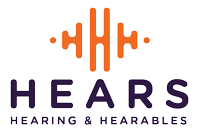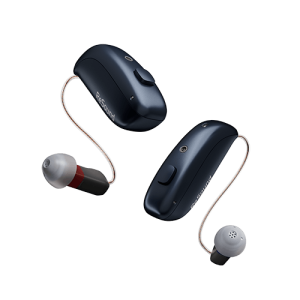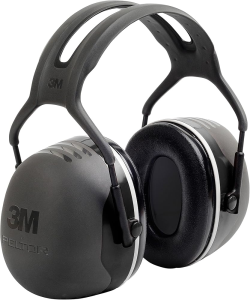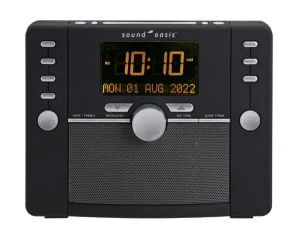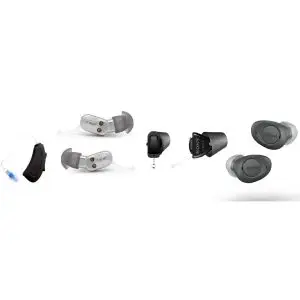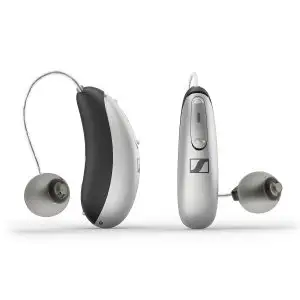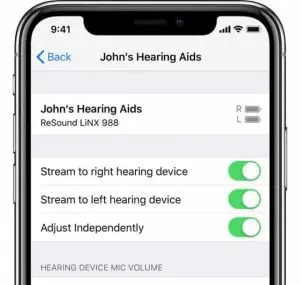Understanding the Difference: OTC versus Prescription Hearing Aids
Curious about the differences between OTC (over-the-counter) hearing aids and professionally fit hearing aids? Let’s explore why the OTC category was created and how it differs from professionally fit options. Understanding these differences can help you make an informed decision about which hearing aid solution is right for you.
Why OTC Hearing Aids Were Created:
Hearing aids are considered medical devices due to their impact on health and well-being. They are regulated by the FDA and similar organizations worldwide to ensure that they are safe, effective, and used appropriately. These regulations are crucial to ensure user safety, protect against potential risks, and guarantee that hearing aids function as intended.
The creation of the OTC hearing aid category arose from a desire to increase accessibility and reduce the costs associated with hearing loss management. OTC hearing aids are designed for individuals with mild to moderate hearing loss, giving them an affordable and convenient solution without needing a prescription or professional fitting. By removing barriers such as medical exams and audiologist consultations, OTC hearing aids empower users to take charge of their hearing health while providing an alternative to traditional hearing aid methods.
For more on this groundbreaking shift, check out our FDA OTC Hearing Aids Overview.
Differences between OTC and Professionally Fit Hearing Aids:
- Accessibility Made Easy: OTC hearing aids are available without a prescription or the involvement of a healthcare professional, meaning you can buy them off-the-shelf at retailers or online. This can be a major convenience for people who want a quick solution and prefer not to go through a formal hearing evaluation process. Learn more about buying hearing aids from the Hears Hearing & Hearables store.
- Purchase Options Simplified: With OTC hearing aids, you can skip the hearing evaluation entirely. This makes the buying process much more straightforward and hassle-free, particularly for people who have a basic understanding of their hearing needs. However, it’s important to remember that not getting an evaluation means you may miss out on getting the most accurate fit for your hearing loss. For a more thorough hearing assessment, visit our hearing evaluation page.
- Personalization Limited: OTC hearing aids typically follow a “one-size-fits-all” approach, offering limited customization. While they may provide basic amplification, they won’t be tailored to your individual hearing needs. Professionally fit hearing aids, on the other hand, are personalized after a detailed audiometric test and lifestyle assessment. These devices are programmed specifically to enhance your unique hearing profile, ensuring you get the most out of your hearing experience.
- Technology and Features Simplified: OTC hearing aids usually come with fewer advanced features. For example, they may not offer high-level digital signal processing, directional microphones, or noise reduction technology. These features are common in professionally fit devices, which offer greater customization for different environments (e.g., crowded places, phone calls, or quiet rooms). If you’re looking for advanced hearing technology, our professional hearing aids might be more suited to your needs.
- Support and Follow-up Care: One of the main differences between OTC and professionally fit hearing aids is the support you receive after purchase. With OTC devices, users are generally left to manage the hearing aids themselves, including troubleshooting and adjustments. In contrast, professionally fit hearing aids come with comprehensive aftercare, including fitting adjustments, follow-up appointments, and ongoing support. At Hears Hearing & Hearables, we provide expert guidance throughout your journey with hearing aids.
- Cost-Friendly Option: OTC hearing aids are generally more affordable because they eliminate the need for professional services like fitting, testing, and follow-up care. This cost savings can make OTC hearing aids appealing to those with budget constraints. However, keep in mind that this lower cost could mean sacrificing some of the higher-end features and the personalized care available with professionally fit devices.
Professionally Fit Hearing Aids: Regulation and Advantages:
- Prescription Required: To purchase a professionally fit hearing aid, you must undergo a comprehensive hearing evaluation conducted by a licensed hearing healthcare professional. This process ensures that the hearing aid is the right fit for your unique hearing loss, optimizing its performance. If you’re interested in scheduling an evaluation, visit our Hearing Evaluation page.
- Personalized to Your Needs: Professionally fit hearing aids are specifically programmed to address your individual hearing loss, based on test results that map your hearing abilities across different frequencies. This personalized fitting ensures that you get the best possible sound quality and amplification for your lifestyle. Our team at Hears Hearing & Hearables can work with you to choose the best hearing aid for your hearing profile.
- Cutting-Edge Technology and Features: Prescription hearing aids come equipped with advanced features, such as digital signal processing, directional microphones, noise reduction, and wireless connectivity. These features enhance the user experience, especially in challenging listening environments. Additionally, professionally fit hearing aids can be customized to provide specialized programs that cater to different listening situations, like talking on the phone, attending events, or driving. For more advanced hearing aids, explore our premium hearing aids.
- Professional Support and Follow-up Care: One of the greatest advantages of professionally fit hearing aids is the personalized care you receive. From the initial fitting to periodic check-ups and adjustments, professionals ensure your hearing aids are always functioning optimally. Our team at Hears Hearing & Hearables is here to offer continuous support, so you never have to navigate your hearing needs alone.
- Investment for Optimal Results: While professionally fit hearing aids are generally more expensive due to the comprehensive care and technology involved, they provide a higher level of customization, advanced features, and ongoing support. For those with more severe hearing loss or complex needs, this investment can make a significant difference in overall hearing performance and quality of life.
Making the Right Decision: OTC or Professionally Fit Hearing Aids?
Ultimately, the choice between OTC and professionally fit hearing aids depends on your individual hearing needs, preferences, and budget. If you’re experiencing mild to moderate hearing loss and are looking for a simple, cost-effective solution, OTC hearing aids may be a great option. However, for individuals with more complex hearing needs or those seeking more personalized care and advanced features, professionally fit hearing aids are likely the best choice.
If you’re uncertain which type of hearing aid is right for you, consider consulting with a hearing healthcare professional. At Hear Hearing & Hearables, we offer expert advice and a variety of hearing aid options to suit your needs. Our team can guide you toward the best solution for your hearing health.
Remember, hearing health is an investment in your quality of life. Whether you choose OTC or professionally fit hearing aids, taking action is the first step toward experiencing the world around you in a more vibrant way.
Explore your options today at Hears Hearing & Hearables and find the hearing aid that works best for you!
